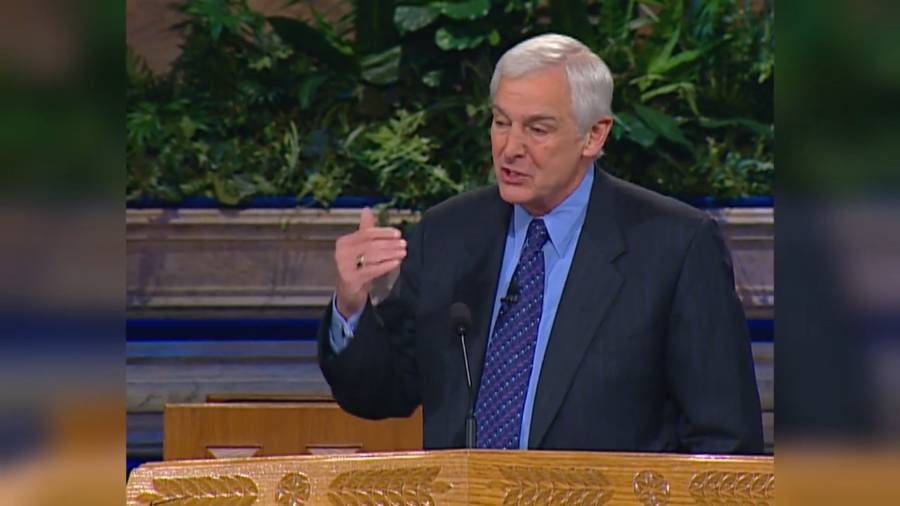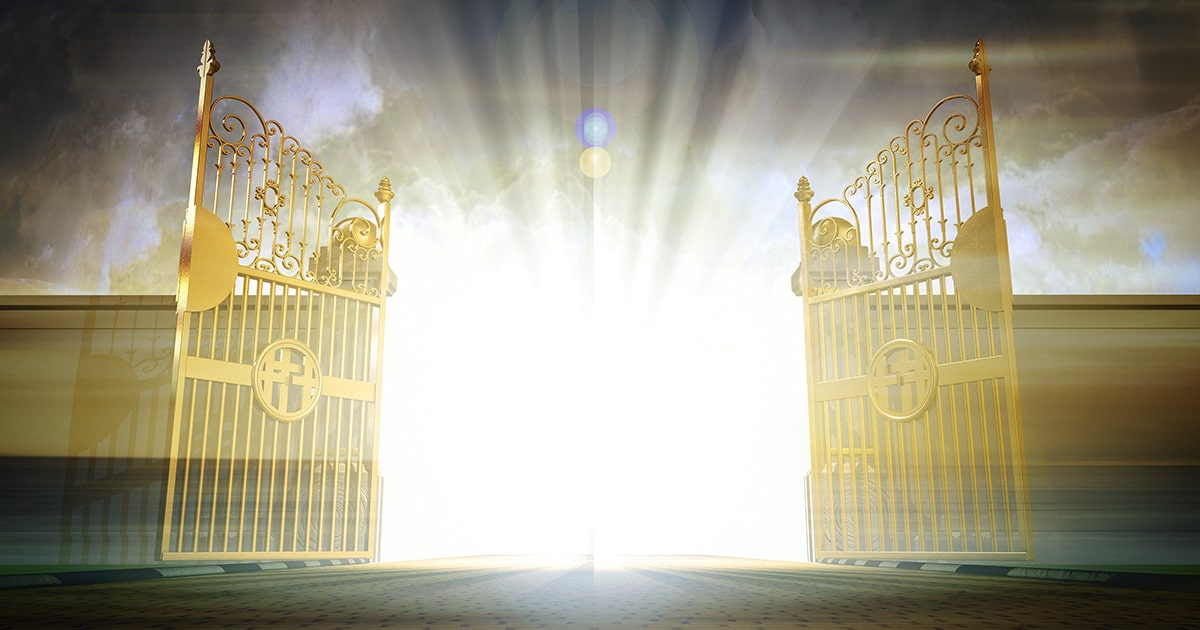
Do I Have a Guardian Angel? And Other Questions About Angels
By David Jeremiah
Mystery surrounds the topic of angels. While they are mentioned about 280 times in Scripture, there is much we don’t know about them. I’ve noticed throughout the years that many Christians today are lacking awe and a sense of mystery when they consider the things of God. My prayer is that this deficit will start to be corrected as we gain respect for the mystery surrounding God’s angels. Their prominence in Scripture suggests that God wants us to know about them.
Angels play an important role in God’s overall plan for humanity. They point to the reality of an unseen world where powerful forces exert influence over our lives. Through our study of angels, we can gain confidence in God’s protection, and we can learn from their example how to serve the Lord wholeheartedly. Studying the things of heaven helps us draw closer to God and His awesome wonder.
What Are Angels?
Angels are God’s messengers. The Greek and Hebrew words for angel mean “messenger.” They are spiritual beings that play a significant role in carrying out God’s will. God created angels just as He created us, and He has a purpose for them just as He does for us. Nehemiah 9:6 says, “You have made heaven… with all their host.” And Paul says, “All things were created that are in heaven and that are on earth, visible and invisible, whether thrones or dominions or principalities or powers” (Colossians 1:16). In the Bible, there are three types of angels mentioned: cherubim (Genesis 3:24), seraphim (Isaiah 6:2), and hosts. Whenever the Bible describes God as “the Lord God of hosts,” it’s another way of saying He is the Lord of the angels.
Different types of angels serve different purposes. Within these types, there is also a hierarchy—with the archangel, Michael, having the most authority. Each angel has his own job description and carries out God’s will by communicating His messages, both by what the angel says and what he does (Psalm 103:20–21).
Can Angels Fall Away From God?
Angels have free will, just like us. Satan was once the angel named Lucifer, which means “morning star.” He became jealous of God and wanted to take His place, with the other angels serving him. Because of this iniquity, Lucifer was banished from heaven and his name became Satan, which means “adversary” (Isaiah 14:12–21). Satan enticed one–third of the angels into joining his rebellion (Revelation 12:4). They, too, were cast out of heaven, becoming fallen angels, also known as demons. When Satan and his followers made this decision, it was a permanent choice—an eternal choice. The Bible presents no opportunities for these fallen angels to repent and be forgiven. Jesus Christ did not shed His blood at Calvary to redeem the fallen angels (Matthew 25:41). He sacrificed His life for mankind—for the world of lost men and women.
Do I Have a Guardian Angel?
Guardian angels are a popular subject in our culture. Sometimes people, even non–Christians, say their guardian angels saved them in near–death experiences. Oftentimes, people believe their loved ones who have passed come back to earth as their guardian angel to watch over them. As far as I can determine, there are just two verses in the Bible that indicate there might be guardian angels in today’s world. In Matthew 18:10 Jesus says, “Take heed that you do not despise one of these little ones, for I say to you that in heaven their angels always see the face of My Father who is in heaven.” Seemingly, some of God’s angels stand ready before the Father to respond instantly to His command for protection and care over these children. Jesus calls these particular angels “their angels,” which has made many believe everyone has an angel—a guardian angel. The second passage is in Acts 12, where an angel freed Peter from prison. After his release, he went to a house where a group of Christians was praying for his release. When the servant who heard Peter’s knock answered the door, she was so excited she left him outside and ran to tell the other believers. They didn’t believe her and reasoned that the person at the door must be Peter’s angel.
There have also been times in the Bible when angels have come to assist one of God’s chosen. After Lazarus died, angels carried him to Abraham’s bosom. And Elisha and his servant were surrounded by many angels. The psalmist writes that all the angels rally for the protection of one saint.
We cannot be one hundred percent sure each believer has a guardian angel, but we can be certain that God’s angels care about us and intervene in our lives as they are called by God.
Do We Become Angels When We Die?
It is a popular belief by some that, after we die, we become angels. But the truth is, we do not. God created angels separately from mankind. They are different from us. God created Adam in His own image (Genesis 1:26). The Bible does not make the same statement about angels, although they occasionally take human form when they appear in Scripture. Also, it is never stated that angels are redeemed. In fact, angels are curious about salvation because they have never experienced it for themselves (1 Peter 1:12), and God’s Word says it causes them to rejoice (Luke 15:10). Angels are a created class of being, and the Bible never represents them as spiritually progressed men. People do not evolve into angels. We do not become angels when we die. Angels were created simultaneously—their full number created in the beginning—and there has been no increase in their ranks since that time. God’s angels exist eternally—as they were created.
What Can We Learn From Angels?
Angels have acted as God’s messengers throughout history. These agents have announced God’s directives to biblical characters who needed guidance or who were chosen by the Lord to serve His special purpose for them. There’s no sloppy workmanship or laziness or negligence on the angels’ part—God can count on them, and so can we (Psalm 103). They embody their mission as God’s messengers. We, too, are called to be messengers for Christ. Jesus’ last words on earth were: “Go therefore and make disciples of all the nations, baptizing them in the name of the Father and of the Son and of the Holy Spirit” (Matthew 28:19). This was His final commission to us—to be God’s messengers to the world.
Angels live in the presence of God and focus their attention on Him. They are filled with an awe that comes with being in His presence. What if you and I camped each night beside God’s throne in glory and stayed full of His presence, even when we went into the world to do His work? We can! We have the privilege of meditating on the glory of the Lord every night and living in His presence every day.
We can learn a lot from the angels’ wholehearted devotion to our Heavenly Father. They show us how to worship and they show us how to work. In heaven, the angels lift endless praise to the Lord. From their example, we learn how to praise God (Hebrews 1:6; Luke 2:13–14; Revelation 5:8–14; Revelation 7:11), share in His joy (Luke 15:7), and stand in His presence (Matthew 18:10).















